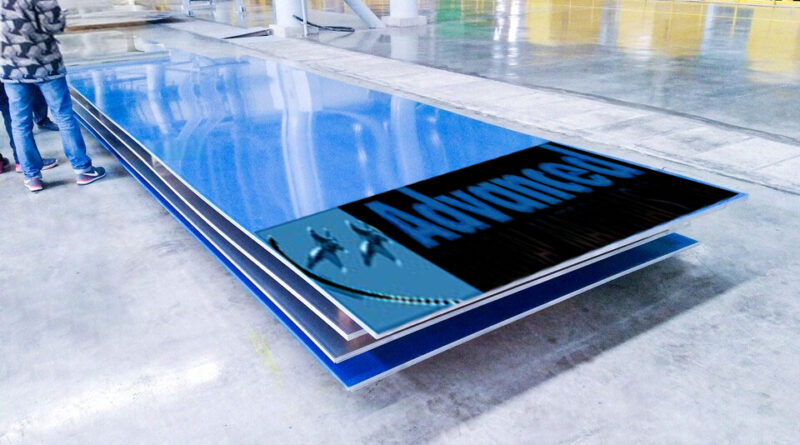Aerospace and Marine Grade Aluminum: The Backbone of Modern Engineering
Aluminum has long been celebrated as a versatile and reliable material, but its specialized grades for aerospace and marine applications have elevated its importance in engineering. Lightweight, durable, and resistant to corrosion, aerospace and marine-grade aluminum alloys are integral to modern transportation, exploration, and defense. This article delves into the unique properties, applications, and future potential of these specialized aluminum grades.
The Evolution of Aerospace and Marine Aluminum
The discovery of aluminum in the 19th century marked the beginning of a material revolution. Initially considered a rare metal due to extraction challenges, technological advancements in the 20th century made aluminum widely accessible. Its low density, combined with exceptional mechanical properties, made it a natural choice for industries seeking lightweight yet robust materials.
In aerospace and marine applications, engineers recognized that traditional aluminum alloys could not withstand extreme conditions such as high altitudes, deep-sea pressures, and corrosive environments. This led to the development of specialized alloys that combined aluminum with elements like magnesium, zinc, and silicon to enhance their properties.
Key Properties of Aerospace and Marine Aluminum
1. Lightweight Strength
Aluminum’s low density (approximately one-third that of steel) makes it ideal for weight-sensitive applications. Despite its lightweight nature, specialized alloys offer exceptional tensile strength, enabling the construction of robust yet fuel-efficient vehicles.
2. Corrosion Resistance
Exposure to atmospheric conditions, saltwater, and moisture poses significant challenges to materials in aerospace and marine environments. Aluminum naturally forms a protective oxide layer, and when alloyed with elements like magnesium or silicon, its resistance to corrosion improves significantly.
3. Thermal and Electrical Conductivity
Aluminum is an excellent conductor of heat and electricity. In aerospace, this property ensures efficient thermal management in engine components and avionics systems. In marine applications, it aids in creating effective cooling systems.
4. Machinability and Malleability
The ease with which aluminum can be machined, welded, and molded makes it a preferred material for complex designs. Aircraft fuselages and marine hulls benefit from aluminum’s adaptability, enabling engineers to craft components with precision.
5. Sustainability
Aluminum is 100% recyclable without losing its properties. This aligns with the aerospace and marine industries’ push toward sustainability, as recycled aluminum significantly reduces the environmental impact of manufacturing.
Aerospace-Grade Aluminum Alloys
Key Alloys and Their Uses
Aerospace aluminum alloys are categorized into two main groups:
- 2xxx Series: These alloys, primarily aluminum-copper, offer excellent strength and fatigue resistance. A prominent example is 2024 aluminum, used in aircraft structures and skins due to its high strength-to-weight ratio.
- 7xxx Series: Aluminum-zinc alloys like 7075 aluminum are renowned for their superior strength, making them suitable for critical components such as wing spars and landing gear.
Applications in Aerospace
- Aircraft Frames and Fuselages:
The lightweight nature of aluminum reduces the overall weight of aircraft, improving fuel efficiency and reducing carbon emissions. - Engine Components:
High-performance alloys like 7075 are used in engine parts where both strength and heat resistance are critical. - Space Exploration:
Aerospace-grade aluminum is essential in spacecraft construction. NASA’s spacecraft, such as the Apollo Lunar Module, utilized aluminum for its durability and ability to withstand extreme temperature fluctuations in space.
Marine-Grade Aluminum Alloys
Key Alloys and Their Uses
Marine aluminum alloys focus on corrosion resistance, particularly in saltwater environments.
- 5xxx Series: Aluminum-magnesium alloys, such as 5083, are highly resistant to seawater corrosion, making them ideal for shipbuilding and offshore platforms.
- 6xxx Series: Aluminum-magnesium-silicon alloys like 6061 offer a balance of strength, corrosion resistance, and weldability, making them suitable for structural applications in marine vessels.
Applications in Marine Engineering
- Shipbuilding and Naval Vessels:
Aluminum alloys are used in hull construction for commercial ships, naval vessels, and yachts. Their lightweight nature improves speed and fuel efficiency. - Offshore Platforms:
Corrosion-resistant alloys like 5083 are used in offshore oil rigs and wind farms, ensuring durability in harsh marine environments.



